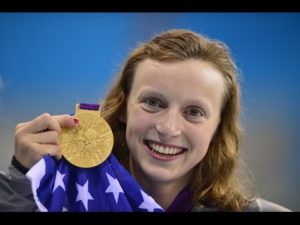Grants approved from February 2016 cycle set new record.

The FSH Society has committed $648,774 in funding to five research projects that aim to break new ground in the search for a treatment and cure for FSHD. These grants bring the total research funding committed by the FSH Society in 2016 to $1,383,692, a 44 percent increase from 2015, and a new record for the Society.
“These grants reflect the high quality and ambition of grant applications submitted to the FSH Society,” said Daniel Perez, President and CEO of the FSH Society. “None of this would be possible without the past years’ growth in the Society’s revenue, fueled by the generosity of donors at every level and the hard work of FSH Society staff, Board members and fundraising volunteers.”
The following proposals submitted in February 2016 were approved:
- “CRISPR approaches targeting DUX4 in vivo.” Peter L. Jones and Robert Bloch, University of Massachusetts Medical School, Worcester. $240,014 for two years.
- “Novel role for reduced RNA quality control in FSHD pathogenesis.” Sujatha Jagannathan, Fred Hutchinson, Cancer Research Center, Seattle, Washington; Robert Bradley and Stephen Tapscott, mentors. $59,225 for one year.
- “Study of the unexpected cytoplasmic functions of double homeodomain proteins DUX4 and DUX4c during differentiation: focus on healthy and pathological muscle cells.” Eugénie Ansseau, University of Mons, Belgium; Frédérique Coppée and Alexandra Belayew, mentors. $124,807 for one year.
- “Assessing the pathologic role of DUX4 in a humanized mouse model of FSHD.” Amber Mueller, University of Maryland, Baltimore; Robert Bloch, mentor. $134,728 for 3 years.
- “Nationwide Children’s Hospital, Columbus, Ohio. MicroRNAs as potential modifiers of Facioscapulohumeral Muscular Dystrophy.” Nizar Saad, Nationwide Children’s Hospital, Columbus, Ohio; Scott Q. Harper, mentor. $90,000 for one year.
With these awards, the Society continues to significantly expand funding for FSHD and the search for treatments and a cure for FSHD, a disease that impacts more than 870,000 individuals worldwide.
In 2015, the Society funded a total of $949,221, a 16 percent increase over total funding in 2014.
For full details and project summaries on the FSH Society’s grant awards, please visit https://www.fshdsociety.org/funded-grants/.


Thank you for the good news. These are really exciting projects, particularly the separate but related projects involving crispr in vivo in Massachusetts and the development of fshd mouse models in Maryland. It would seem the crispr project and possibly others will likely be working symbiotically with the Maryland mouse model project.
It would seem the Maryland mouse model project is going to be key to so many other projects. If an article hasn’t been created related to what fshd patients and their families can do to help with that project, that would be useful. I’m sure plenty of tissue samples will be required to build what will likely be a high demand for mouse models. What types of biopsies (needle vs open muscle) and of what human muscles will suffice to ensure the Maryland project has an adequate supply of human tissue with which to graft?